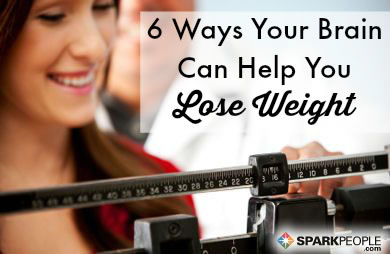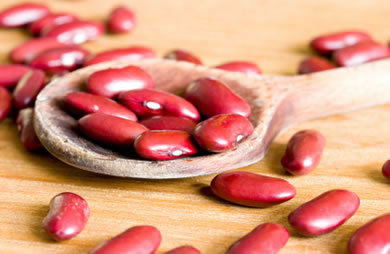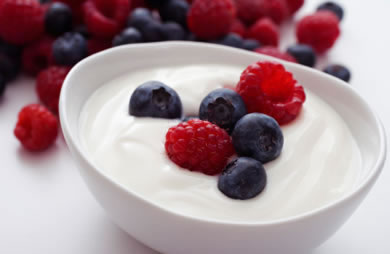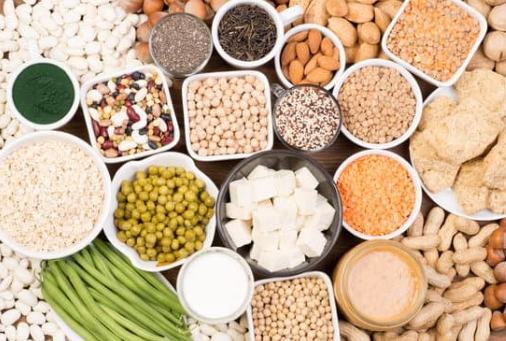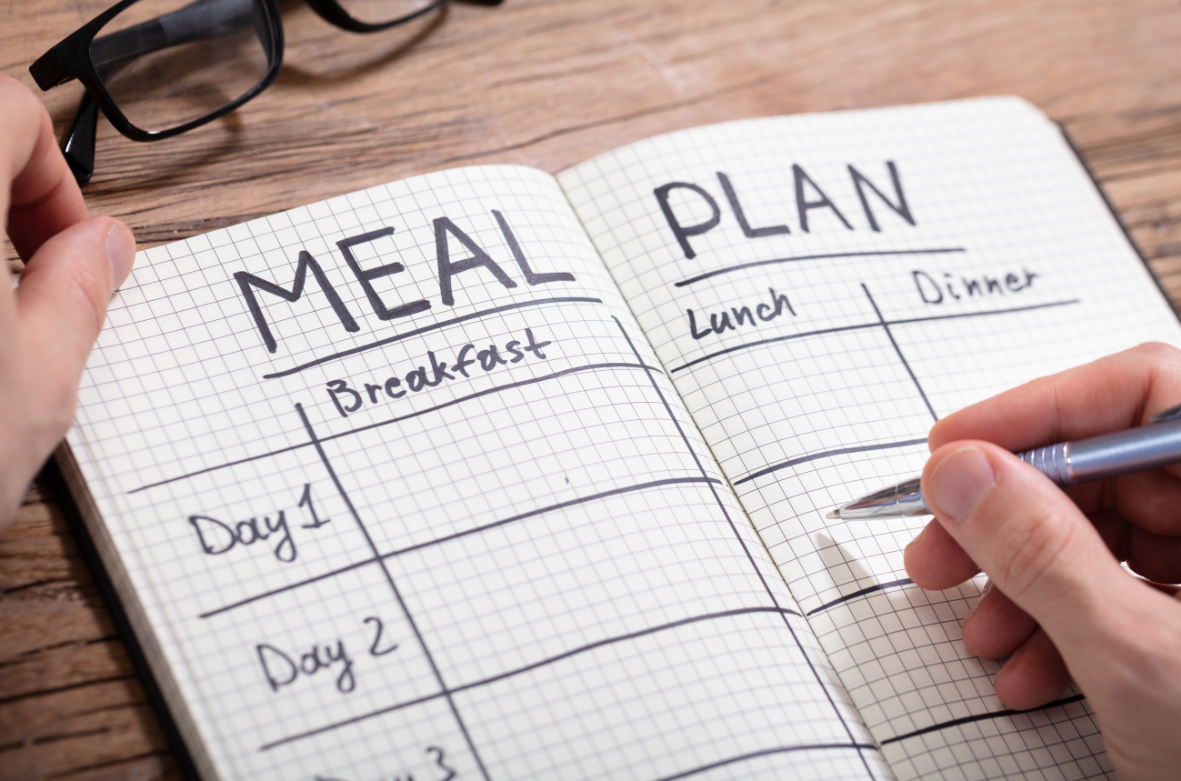A lot changes as we age, including our metabolism. According to Torey Armul, registered dietitian and spokesperson for the Academy of Nutrition and Dietetics, our metabolic rate generally decreases by one to two percent each decade. Although that might not seem like a significant slowdown, a few extra calories per day can add up over the years.
"As you age, it's even more important to listen to your body," says Liza Baker, health coach with Simply: Health Coaching. "There's no reason to reduce the amount of time you spend exercising—I believe the minimum should still be 30 minutes daily—but there comes a time when the 'mix' may need to change."
Although you can't stop time from marching on, there are some smart, age-specific strategies you can implement to keep it from derailing your weight-loss goals or maintenance strategy.
Weight Loss in Your 20s
Although weight management may seem like a breeze in your 20s, it's important to focus on healthy eating habits as you start building a foundation for the rest of your adult life. "As we get older, losing weight will take more effort and time," says Lisa Corsello, fitness expert and founder of Burn. "The 20s are a great time to lose any unwanted extra weight and find a healthy, sustainable nutrition plan."
To build a strong fitness foundation, Corsello recommends a mix of cardio and weight training, with a focus on core and leg strength—and don't forget to stretch regularly.
Chelsey Amer, registered dietitian and creator of C it Nutritionally, says it's important for twentysomethings to eat enough calcium to create a foundation of bone strength. This can be found not only in dairy products, but also in white beans, canned salmon and dried figs, to name a few. On sunny days, take your workouts outside to boost your vitamin D intake, which helps your body to properly absorb calcium. For females in their 20s, it's also essential to eat enough iron, which is found in foods like lentils and dark, leafy greens.
Weight Loss in Your 30s
As you enter your fourth decade, it becomes more important to maintain a healthy weight, as holding onto excess weight in your 30s could increase your risk of developing heart disease, diabetes and other chronic diseases in your 40s. However, with an increase in family and career responsibilities, there's usually a shift from planning your life around fitness to planning fitness around your life.
Dani Singer, fitness director at Fit2Go Personal Training, says the key is creative and practical planning. That might mean swapping hour-long gym sessions for sporadic 10-minute home bodyweight circuits throughout the day or prepping your meals on Sunday nights instead of cooking from scratch every day. "The name of the game is practicality," says Singer. "Don't get caught up in what you used to do. Focus on what works for your life now."
To increase endurance, burn more calories and strengthen the entire body, Corsello recommends incorporating circuit training in your 30s. Mixing up the routine regularly is also key to push through plateaus and maintain your progress. If you notice any aches or pains, address them immediately before they develop into chronic problems. She also suggests weighing yourself once a week and focusing on healthy eating as your metabolism slows a bit.
This is also a time when new mothers struggle to stay healthy during and after pregnancy. "It's important to enter pregnancy at a healthy weight, gain a healthy amount and then return to pre-pregnancy weight within a year after pregnancy," says Amer. "Obviously, you won't lose the baby weight overnight, but the key is to continue healthy habits."
Weight Loss in Your 40s
It may not be a welcome development, but it's completely normal for your metabolism to slow noticeably by the time you hit the big 4-0, making it more important than ever to put your health first. Sarcopenia (loss of muscle mass) also becomes a major factor after age 40, with inactive individuals potentially losing as much as 3 to 5 percent of muscle mass per decade.
"Staying physically active, specifically with strength training, can help offset some symptoms of perimenopause and help maintain muscle mass, which some lose with age," says Amer.
Corsello stresses the importance of form, posture and strength for fortysomethings. "Weight training increases bone density, and having more lean body mass actually increases your metabolism," she says. Corsello also recommends continuing with the cardio, choosing lower-impact modifications as needed while still challenging yourself. "Variety is important in your workouts—don’t be afraid to try new things."
On the nutrition front, Corsello suggests eating small meals throughout the day and preparing dinners comprised of veggies and lean protein. Strive for a diet rich in fiber and potassium, which will help you feel full longer to combat a slower metabolism. Calcium also continues to be important for bone health.
Weight Loss in Your 50s
In your 50s, you may find that you can't work out with the same intensity or stamina as you once did, but that doesn't mean exercise becomes any less important. Baker suggests incorporating a little more stretching, yoga and balance work—and don't forget the strength training.
"As we age, resistance work is super important to maintain bone and muscle strength," says Baker. "If you have problems with joint pain, try reducing the impact—maybe go from running to walking."
For women around age 50, hormonal changes due to menopause can make it even more difficult to maintain a healthy weight and prevent chronic diseases. Reduced levels of estrogen can also change insulin sensitivity, increasing the risk of diabetes. According to Amer, it's important to monitor your intake of sweets and refined white carbohydrates at this age. "Eliminating these foods from your regular daily diet will boost your insulin sensitivity, which helps to prevent diabetes and thwart weight gain," she says.
Weight Loss in Your 60s
Even if you've had smooth digestive sailing up until now, it's very possible to start experiencing gastrointestinal issues in your 60s. "Your GI tract can get sluggish as you age, so it's especially important to get enough fiber from whole foods like vegetables, fruit, whole grains and legumes," says Amer. She also recommends drinking sufficient fluids and exercising regularly to help offset uncomfortable symptoms of constipation and to maintain a healthy weight.
At this age, consistency is key. "As long as you're engaging in physical activity on a regular basis, you are preventing many chronic conditions," notes Julia Buckley, fitness trainer with Julia Buckley Fitness. "Make sure to get plenty of vitamin B12 to help your body continue generating new blood cells."
Weight Loss in Your 70s
For people over 70, it often becomes a challenge to get the right variety into their diets. "As you get older, appetites can change, dietary restrictions may arise and it may be more difficult to prepare balanced, healthy meals," notes Amer.
Ideally, older adults should consume a wide variety of foods at every meal, including fruits and vegetables, lean protein like eggs, fish and chicken, and healthy fats found in nuts and seeds. "Continue to eat a balanced diet that includes essential nutrients, vitamins and minerals to keep you healthy and strengthen your immune system," recommends Buckley.
On the exercise front, Buckley says it's important to focus on workouts that help maintain balance, flexibility and strength.
Regardless of your age, maintaining a healthy weight should be a priority. "I'm a firm believer in bio-individuality," says Baker. "If you listen to your body and make sure to move—whether it's a gym workout or physical activity like gardening, walking or cleaning—you will stay healthy longer." If you have specific questions or concerns about the right diet or exercise plan for your needs, talk with a fitness professional or nutrition coach.





